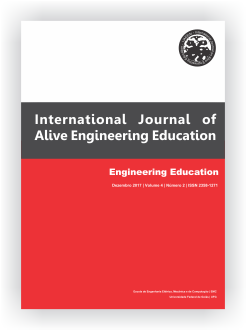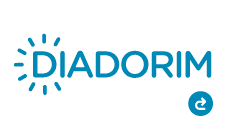Cooperative Learning Environment in Teaching Mobile Application Development
DOI:
https://doi.org/10.5216/ijaeedu.v4i2.48151Resumo
The evolution in the formation of techniques in technological vocational education constitutes a series of pedagogical strategies that allow the learning, exercise, incentive and practice of students. The projects of interdisciplinary in the university aims to assist in learning the individual with the incentive of activities directed for collaborating with students in undergraduate. These projects are important for undergraduate courses in electrical engineering and computing engineering at the Universidade Federal do Ceará (UFC), Sobral campus. With the main objectives of the project is to encourage the student to learn to academic growth. This article presents a case study developed by the project called the cooperative learning cell for the development of android applications, applied in groups of engineering students in the first and second semesters, using recent teaching methods aimed at learning, occurring in the period from September to December 2016. The main objective of the project was to promote the learning and sharing of knowledge about the programming content for mobile devices, aimed at the android operating system. In addition, it seeks to stimulate the student with more interactive content, applying examples and activities related to mobile programming that were related with the content of the engineering course or the labor market. After the group of students was created, nine meetings took place in each of them, the cooperative learning methodology was applied to the group, where the knowledge was generated through the interaction between two or more people, resulting in an active participation of the educational process. The classes were designed with a focus on content exposure, challenges and small projects to solve group tasks. In addition, professionals working in engineering companies in the northern region of Ceará were invited to give lectures to show the current situation of the labor market, focused on mobile applications. Evaluating the result over the course of the project.
Keywords: Educational incentive, Cooperation, Engineering Teaching, Android.
Downloads
Publicado
Edição
Seção
Licença
Ao submeter eletronicamente um artigo na Revista Eletrônica Engenharia Viva, o responsável pela submissão:
a) Declara que o documento em questão é um trabalho original, e que detém prerrogativa de conceder os direitos contidos nesta licença. Declara também que a entrega do documento não infringe, tanto quanto lhe é possível saber, os direitos de qualquer outra pessoa ou entidade.
b) Se o documento em questão contém material do qual não detém os direitos autorais, declara ter obtido autorização do detentor dos direitos autorais para conceder à Universidade Federal de Goiás os direitos requeridos por esta licença, e que esse material cujos direitos são de terceiros está claramente identificado e reconhecido no texto ou conteúdo do documento em questão.
c) Declara ainda que qualquer pessoa nomeada como autor ou co-autor do documento tem consciência do fato e concorda em ser assim nomeado.
Termo de Autorização
Na qualidade de responsável pela submissão do documento, autorizo a Escola de Engenharia Elétrica, Mecânica e de Computação da Universidade Federal de Goiás (EMC/UFG) a disponibilizar a obra, gratuitamente, por meio do Sistema Eletrônico de Editoração de Revistas da UFG (SEER/UFG) ou na forma impressa, sem ressarcimento dos direitos autorais, de acordo com a Lei nº 9610/98. Fica permitido, a leitura, a impressão e/ou download, a título de divulgação da produção científica brasileira. Qualquer uso da obra que não o autorizado sob esta licença ou pela legislação autoral é proibido.



